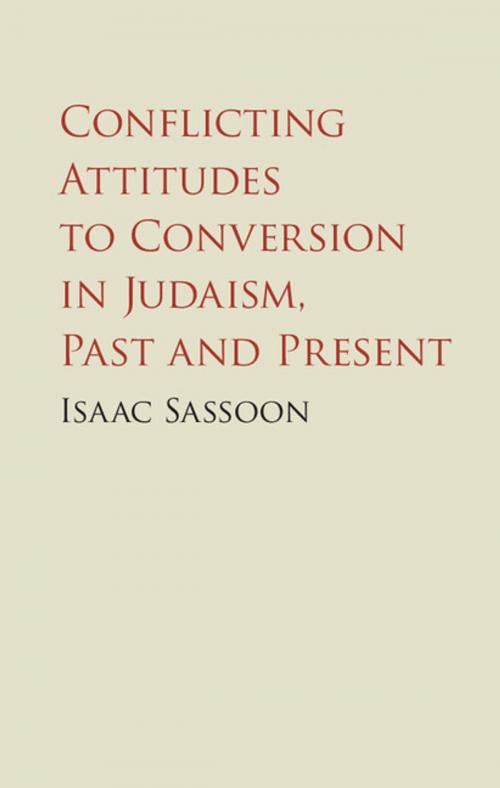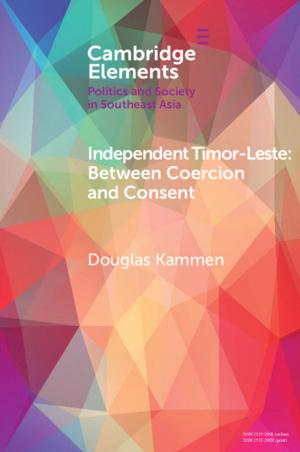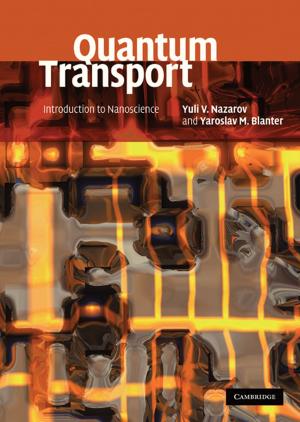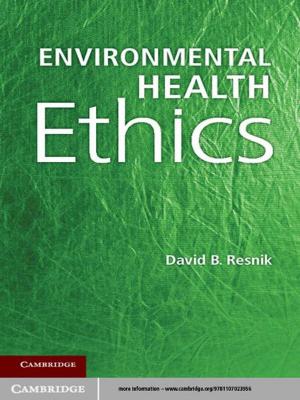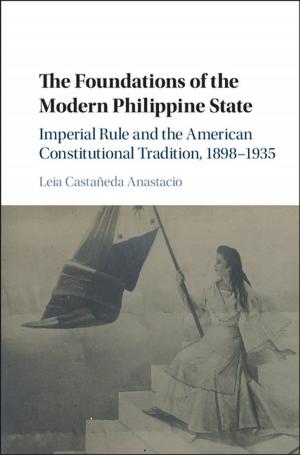Conflicting Attitudes to Conversion in Judaism, Past and Present
Nonfiction, Religion & Spirituality, Judaism, History| Author: | Isaac Sassoon | ISBN: | 9781108245227 |
| Publisher: | Cambridge University Press | Publication: | November 30, 2017 |
| Imprint: | Cambridge University Press | Language: | English |
| Author: | Isaac Sassoon |
| ISBN: | 9781108245227 |
| Publisher: | Cambridge University Press |
| Publication: | November 30, 2017 |
| Imprint: | Cambridge University Press |
| Language: | English |
Evidence suggests that conversion originated during the Babylonian Exile. Around the same time, biological genealogy was gaining popularity, especially among priests whose legitimacy was becoming increasingly defined by 'pure' pedigree. When the biological, or ethnic, criterion is extended to the definition of Jewishness, as it seems to have been by Ezra, the possibility of conversion is all but precluded. The Rabbis did not reject the primacy of genealogy, yet were also heirs to a strong pro-conversion tradition. In this book, Isaac Sassoon confronts the tensions and paradoxes apparent in rabbinic discussions of conversion, and argues that they resulted from irresolution between the two conflicting traditions. He also contends that attitudes to conversion can impact not only one's conception of Judaism but also on one's faith, as seems to be demonstrated by authors cited in the book whose espousal of a narrowly ethnic view of Judaism allows for a nepotistic theology.
Evidence suggests that conversion originated during the Babylonian Exile. Around the same time, biological genealogy was gaining popularity, especially among priests whose legitimacy was becoming increasingly defined by 'pure' pedigree. When the biological, or ethnic, criterion is extended to the definition of Jewishness, as it seems to have been by Ezra, the possibility of conversion is all but precluded. The Rabbis did not reject the primacy of genealogy, yet were also heirs to a strong pro-conversion tradition. In this book, Isaac Sassoon confronts the tensions and paradoxes apparent in rabbinic discussions of conversion, and argues that they resulted from irresolution between the two conflicting traditions. He also contends that attitudes to conversion can impact not only one's conception of Judaism but also on one's faith, as seems to be demonstrated by authors cited in the book whose espousal of a narrowly ethnic view of Judaism allows for a nepotistic theology.
